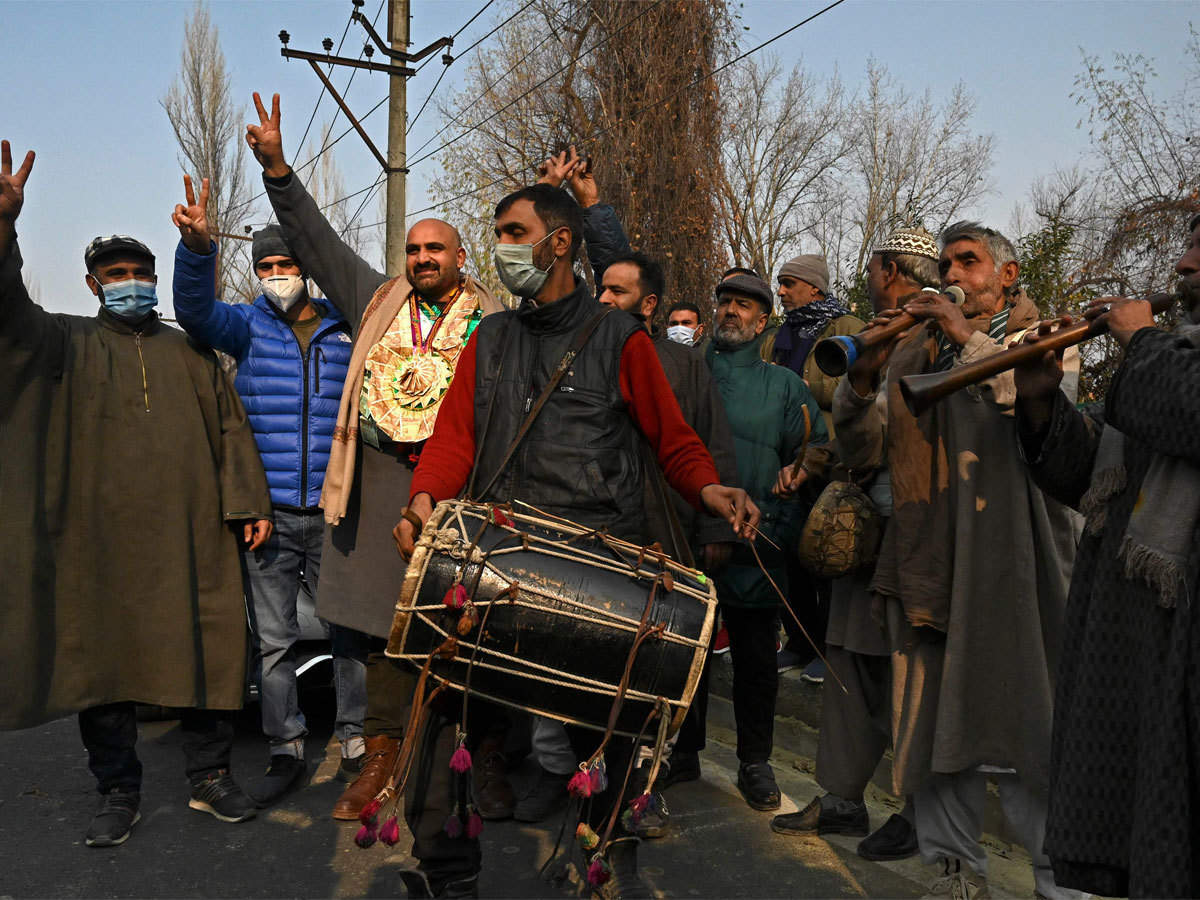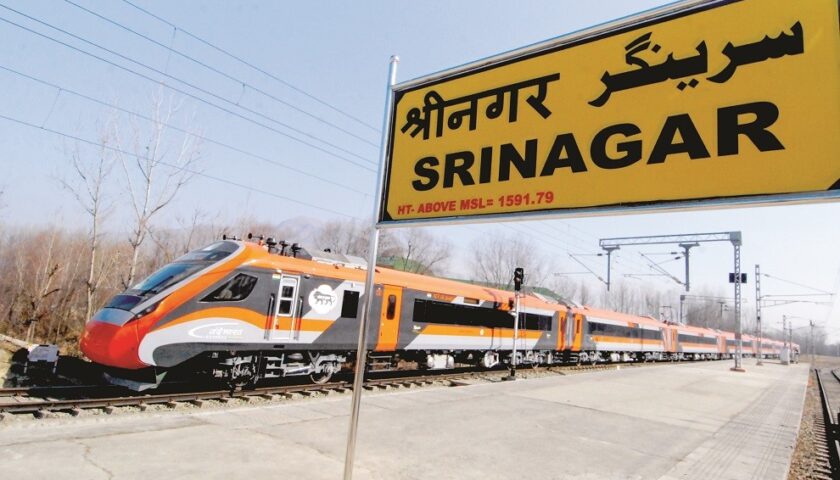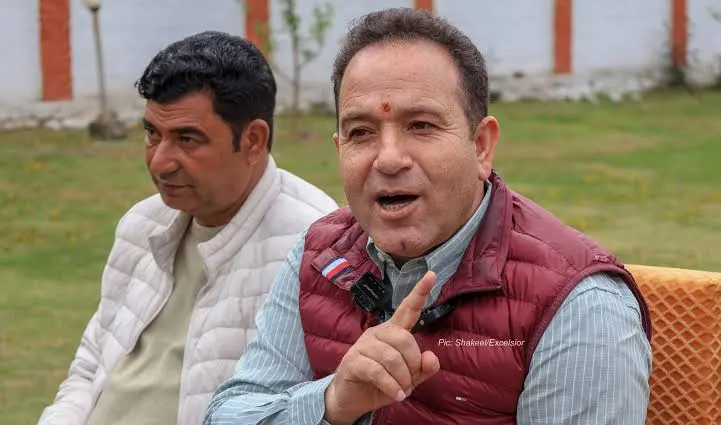A pro-India political alliance based in Kashmir registered impressive gains in local elections held for the first time since the abrogation of the region’s special constitutional status in August last year.
The People’s Alliance for Gupkar Declaration, a grouping of pro-India parties, is expected to win a majority of the 280 seats in the Local Development Council following the elections on Monday.
Out of 140 seats in the Muslim-majority valley, the alliance was ahead with close to 90 seats.
In the Hindu-dominated Jammu region, where the same number of seats are at stake, the group is ahead in more than 40 seats, giving the ruling Hindu nationalist Bharatiya Janata Party (BJP) a tough fight.
“We took the decision to contest the election and show the world our resentment against New Delhi and oppose what has been done in Kashmir in the last two years,” Nizamuddin Bhat, spokesperson for People’s Democratic Party (PDP), told Arab News.
The PDP is one of the members of the seven-party alliance.
He said that the poll result reflects an “undercurrent of anger.”
“Even without campaigning, the results are encouraging because the undercurrent of anger is being expressed now,” Bhat said.
This is the first election in the disputed Kashmir region since the abrogation of Article 370 and the Article 35A of the constitution that gave the state of Jammu and Kashmir a limited constitutional autonomy.
In August last year, the BJP government revoked the special status of Kashmir and reinforced troops in the valley, suspended all democratic rights, detained almost all the leaders of the pro-New Delhi parties and jailed hundreds of activists. For more than six months the region remained in an unprecedented lockdown.
New Delhi split the state into two federally administered territories of Jammu and Kashmir and Ladakh.
Each territory has an elected assembly, but the overriding power is given to a lieutenant governor, who is the center’s appointee.
“People have risen up. The election shows that democracy is reborn in Kashmir,” Bhat said.
The leader of the valley’s oldest political party, National Conference (NC), said that the results show people are opposed to the BJP.
“We did not want to give the impression that only BJP matters — that’s why we contested the elections in alliance and people supported us,” NC leader Ali Mohammad Asghar told Arab News.
However, the BJP believes the election has laid the “foundations of a new democracy.”
Jammu-based BJP leader Ashwani Kumar Chrungoo told Arab News” “This is a successful election where 51 percent of people participated. In the valley over 30 percent of people voted. This is the decentralization of power. It has laid the foundation of new democracy in the region,” he said.
The BJP-supported Apni Party failed badly in the polls.
However, political analysts doubt the elections will address the resentments of people in the region.
“In Kashmir, elections have always been an exercise to legitimize predetermined results”, Prof. Sheikh Showkat Hussain of Kashmir University told Arab News.
“The elections will not legitimize the acts of New Delhi. People’s perception is not going to change.”
He questioned the validity of an election where everything is under the government’s control.
“It is an election in a totalitarian set-up where media is controlled, civil society groups are banned, people are caged and dissent is controlled. It’s a managed show to convey to the world that people have accepted what we did to them,” Hussain said.
Srinagar-based political analyst Gowhar Geelani, author of “Kashmir: Rage and Reason,” said that the election result is “a blow to the BJP’s political narrative.”
“The BJP hoped that major regional parties would boycott the polls and that would pave the way for the BJP to create a new leadership of stooges and opportunists. It also wanted to show the world that democratic measures were operational in Kashmir,” he said.
“These elections are a trap. It is bait thrown at the regional political forces so that the Aug. 5 decision is normalized. In the absence of civil liberties, political, religious and media freedom, such elections held in a militarised atmosphere will only be seen as a military exercise, not a free and fair democratic process”, Geelani said.




